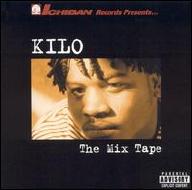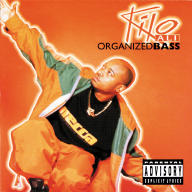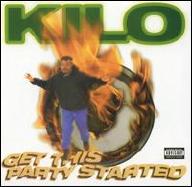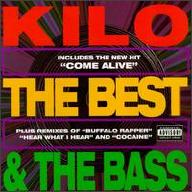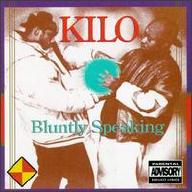Born in Atlanta's Bankhead neighborhood in 1973, Kilo Ali (born Andrell Rogers) got involved with a local gang at a young age before turning his hand to music during his late teens. A fusion of local bass music and rap styles taken from the two coasts of hip-hop's infancy, Kilo's early material combined the thumping bass of the South with a more traditional rap style, creating a distinctly Southern blend of hip-hop. At the age of just 17, Kilo released debut project America Has a Problem (1991) locally on cassette, producing one of Atlanta's earliest rap records. While much of the project featured turn-up party anthems, Kilo also demonstrated a more conscious strain with the slave narrative "Niger Boy" and the acute social commentary "Cocaine."
Catapulted to local fame by the latter of these tracks, the rapper continued to release albums prolifically, dropping A-Town Rush, Bluntly Speaking, Git Wit Da Program, and The Best and the Bass between 1992 and 1994. These projects, as much a mix of styles and genres as his debut, bolstered Kilo's celebrity, their songs becoming a mainstay on Atlanta radio, at block parties and in the city's growing club scene. His sixth project, 1995's Get This Party Started, soon gave the MC his first major success nationwide, with strip club anthem "Nasty Dancer/White Horse" reaching number 17 on the U.S. rap charts.
Building on his connection to Organized Noize, he landed a distribution deal with Interscope for his seventh album, Organized Bass (1997). Choosing the moniker Kilo Ali for his Interscope debut, Kilo brought both big names and Southern contemporaries, including features from Outkast's Big Boi and Parliament-Funkadelic's George Clinton. While the album found commercial success, it was short-lived: Rogers' career ground to a standstill the following year after a first-degree arson conviction, which landed him in jail for six years following the release of Organized Bass. After the sentence, Kilo returned to rap, but eighth album Sa-La-Meen (2010), and its 2011 follow-up, Hieroglyphics, found minimal commercial and critical success. Despite remaining out of the game since then, Kilo's legacy stands as an originator and pioneer of Southern hip-hop; the MC's blend of traditional rap with local sonics gave the South one of its first tastes of hip-hop, kickstarting Atlanta's progression into the hip-hop-heavy weight that the city would later become. ~ David Crone, Rovi


